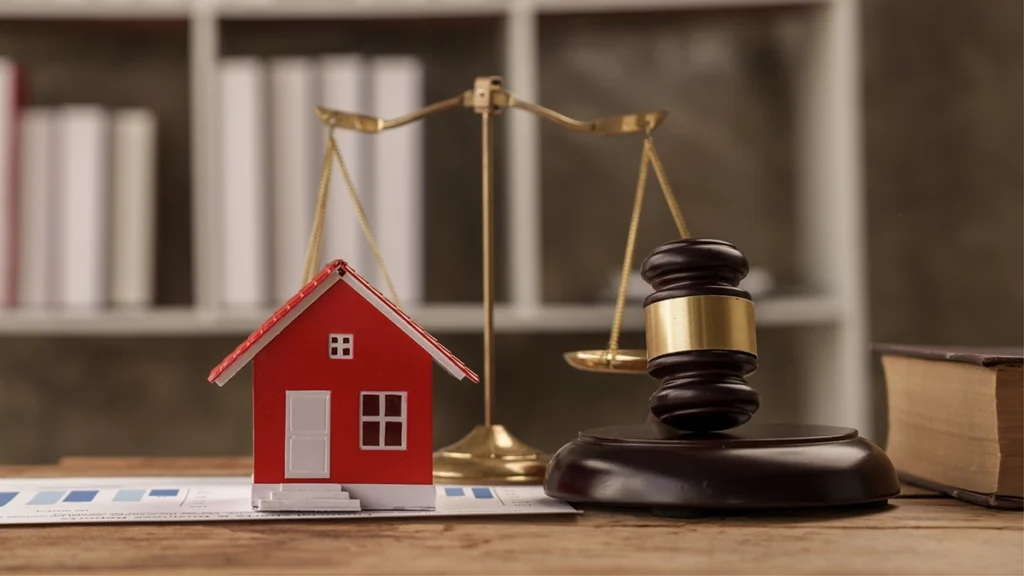Is a Will really enough to give you peace of mind, or could it lead to more stress and delays for your loved ones later?
Many homeowners are finding that a Lady Bird Deed offers a simpler, more secure path. Both options serve a purpose, but they work in very different ways.
Understanding those differences can help you protect your home, your wishes, and the people you care about most.
What a Will Really Does
A Will is a written legal document that sets instructions for distributing assets after death. It can cover nearly everything you own: money, personal belongings, vehicles, and real estate. However, a Will does not bypass the court system.
Real estate listed in a Will usually has to go through probate, which is the formal legal process of proving and carrying out the document. This means your heirs may wait months before taking ownership of the home.
The Role of Probate
Probate is meant to ensure fairness and legality. A court validates the Will, settles debts, and approves distribution of property. While this provides oversight, it also brings challenges. Families may face filing fees, attorney costs, and delays that stretch from months to years.
In some cases, disagreements between relatives make the process even longer. For many families, probate feels like an added burden during an already painful time.
Why Wills Still Matter
Even with these challenges, Wills remain a cornerstone of estate planning. They can direct guardianship for children, divide personal property, and establish how financial accounts should be distributed. Without a Will, state law decides who gets what.
Still, for real estate, a Will alone does not guarantee a quick or smooth transfer. That is where tools like Lady Bird Deeds can fill the gap.
What a Lady Bird Deed Offers
A Lady Bird Deed, formally called an Enhanced Life Estate Deed, is a specialized document for real estate. It lets a property owner name a beneficiary who will receive the home automatically at death. Unlike a traditional life estate deed, the owner keeps full control while alive.
This includes the right to sell the home, refinance a mortgage, or revoke the deed entirely. The key feature is that, at death, the transfer happens instantly when the beneficiary records the death certificate with the county.
No probate is required for that property.
Where They Apply
Lady Bird Deeds are recognized only in 6 states: Florida, Texas, Michigan, West Virginia, Vermont, and North Carolina. Homeowners in these states often use them because they are straightforward, cost-effective, and widely accepted by county recording offices.
In other states, homeowners must look at other estate planning options, such as transfer-on-death deeds or living trusts.
Comparing the Two Approaches
A Will only takes effect after death and after probate is complete. A Lady Bird Deed works in real time: it is effective when signed and recorded, and the transfer occurs the moment the death certificate is filed. This difference can mean months of waiting versus almost immediate ownership. Families often see the contrast clearly.
For example, Robert, a 69-year-old homeowner in Texas, wanted his daughter to inherit his home but also needed the option to refinance if medical bills increased. A Will would have forced the home through probate, delaying her access and adding costs.
By choosing a Lady Bird Deed instead, Robert ensured his daughter received the property within days of his passing, without court involvement.
Control During Life
A Will has no power while the person is alive. A Lady Bird Deed, on the other hand, coexists with ownership. The homeowner can continue to act as if nothing changed. They do not need permission from the future beneficiary to refinance or sell the home.
Cost of Transfer
Probate costs vary, but even simple cases can consume thousands of dollars. Legal representation, court filings, and potential disputes all add up. A Lady Bird Deed requires only the upfront recording fee, often just a few dollars, and avoids probate later.
Risk of Disputes
Because Wills go through probate, they can be challenged. Relatives may question intent or fight over wording. A Lady Bird Deed, once properly executed, overrides the Will for the property it names. This makes the transfer far less vulnerable to dispute.
How Wills and Lady Bird Deeds Work Together
It is not a choice between one or the other. In many cases, Wills and Lady Bird Deeds complement each other. The deed covers real estate, ensuring a smooth transfer of the home. The Will covers everything else: financial accounts, personal property, or directions for guardianship. When used together, they create a plan that addresses both speed and completeness.
Interaction With Trusts
Some families also consider revocable living trusts. These can avoid probate for multiple assets, not just real estate. However, trusts are more expensive to create and maintain. A Lady Bird Deed provides a simpler solution for the home, while a Will or trust handles the rest. For many middle-class families, this combination is both practical and affordable.
Medicaid and Long-Term Care Considerations
One unique feature of Lady Bird Deeds is how they are treated in Medicaid planning. In many of the states that allow them, the home does not count as a completed gift for Medicaid eligibility purposes. This means a homeowner can record the deed and still qualify for benefits if long-term care becomes necessary.
Later, when they pass away, the property transfers without being subject to estate recovery. This is a significant advantage over simply leaving the home through a Will.
Why Probate Can Create Stress
Probate is not always disastrous, but it is often slow. Court schedules, required notices to creditors, and the opportunity for disputes all create delays. While waiting, heirs may be unable to sell, rent, or refinance the home. Property taxes, insurance, and maintenance costs continue, sometimes leaving heirs financially strained.
This explains why families with Lady Bird Deeds often describe the process as smoother and more compassionate.
Addressing Common Misunderstandings
Does a Will Override a Deed?
No. A properly executed Lady Bird Deed overrides a Will for the property it covers. Even if the Will names someone else, the beneficiary listed in the deed Will inherit the property. This clarity is one of the main reasons families choose it.
Can Beneficiaries Sell Immediately?
Yes, once the property transfers, the beneficiary becomes the new owner and can sell or refinance if they choose. This happens only after the original owner passes away, keeping control fully in their hands during life.
What If Circumstances Change?
The homeowner can revoke or change a Lady Bird Deed at any time. Unlike a traditional life estate, they are not locked in. This flexibility is what makes it especially attractive for those who want to keep options open.
Estate Planning in Context
For many families, the home is the largest asset. Choosing the right tool to handle its transfer is essential. Wills provide structure for the overall estate, but they do not prevent probate for real estate. Lady Bird Deeds offer a targeted way to manage this single, crucial asset.
In states where they are recognized, homeowners often combine both approaches to provide clarity and reduce cost. The result is a plan that balances independence, protection, and peace of mind.
Final Thoughts
Wills and Lady Bird Deeds are not competitors. They are partners in planning. A Will gives broad instructions for everything you own. A Lady Bird Deed ensures your home transfers quickly and efficiently. Together, they prevent delays, reduce conflict, and give families the gift of certainty.
Estate planning is not about choosing one tool—it is about fitting the right tools together so that your wishes are honored and your family is cared for.
Key Takeaways
- A Will covers most assets but cannot prevent probate for real estate.
- A Lady Bird Deed transfers property instantly without court involvement.
- A Lady Bird Deed overrides a Will for the property it names.
- Using both together creates a stronger, more complete estate plan.



